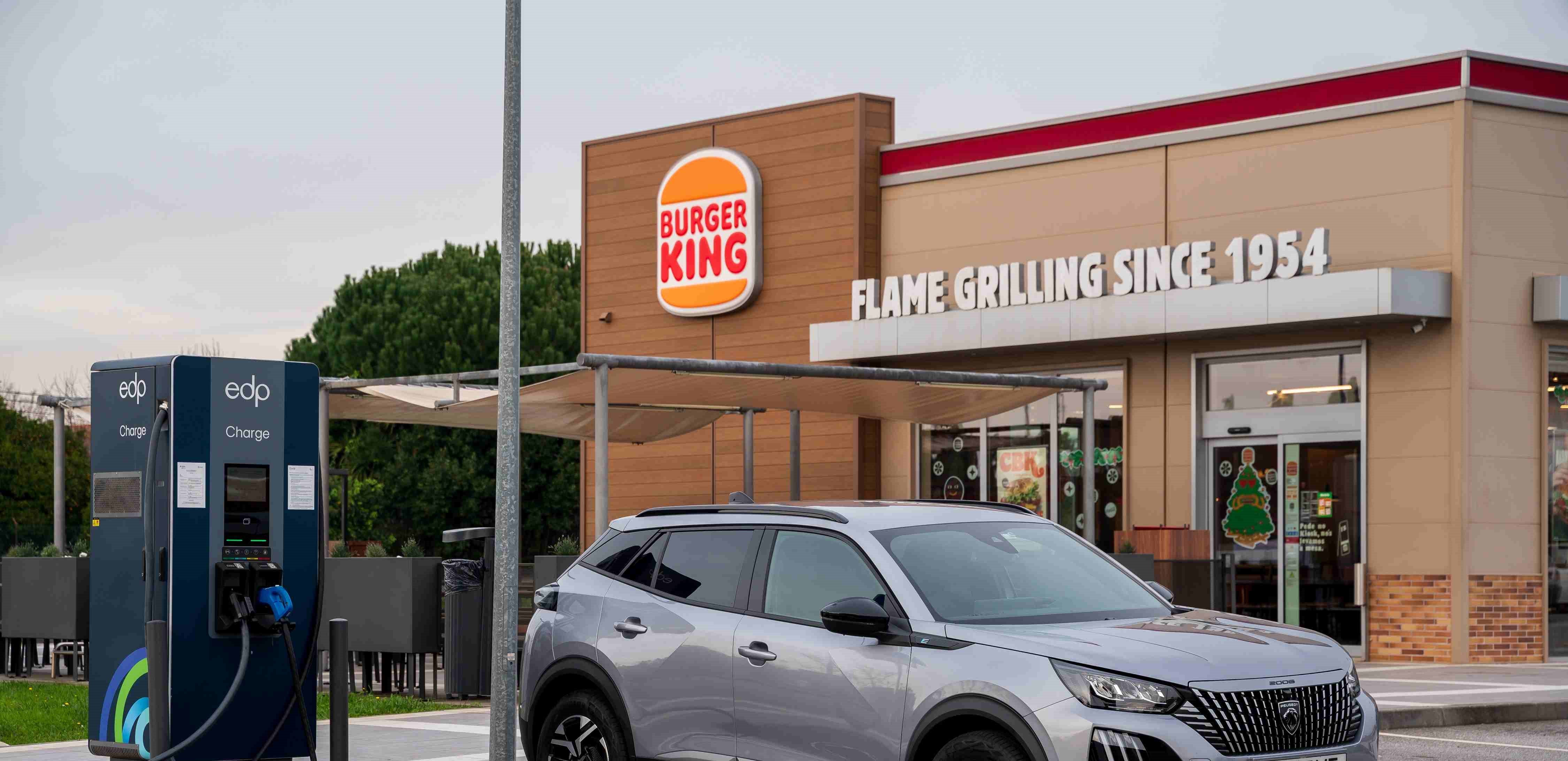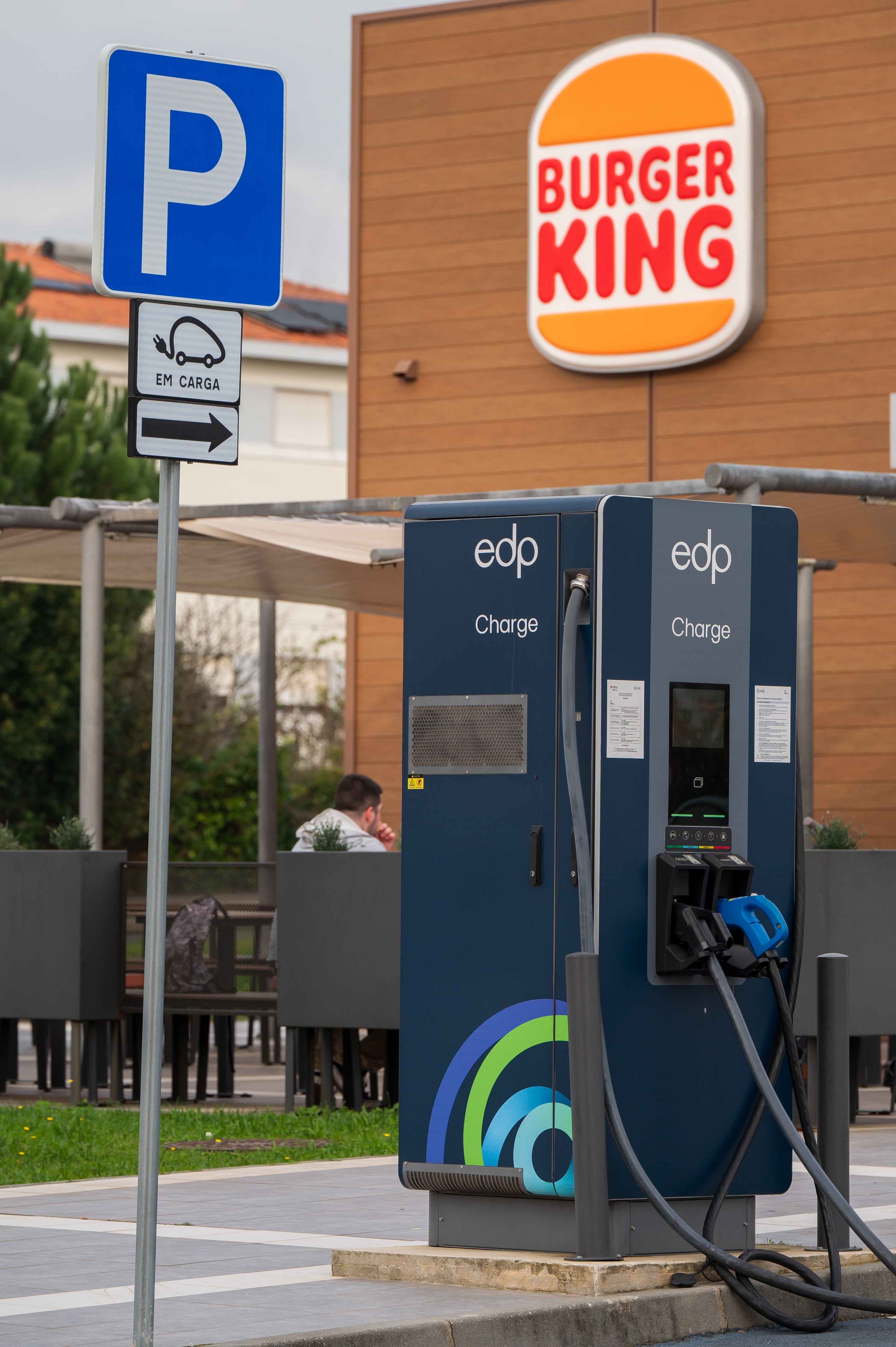
Burger King® Portugal and EDP install 180 electric charging points across the country

A partnership between the two companies makes it possible to provide 180 EDP charging points in 90 restaurants in mainland Portugal. The vast majority of chargers are fast, offering convenient charging solutions to visitors to Burger King® Portugal.
As part of its commitment to sustainable mobility, Burger King® Portugal is implementing a plan to introduce Charging Points (PCs) for electric cars. EDP was chosen by Burger King® Portugal to install and operate electric vehicle charging points in 90 of the brand's restaurants across Portugal. About 150 of the 180 planned charging points are already in operation and the rest will start operating in 2025.
The partnership between EDP Comercial and Burger King® Portugal has already enabled around 118,000 electric vehicle charging sessions, enough to travel more than 20 million kilometres using electricity alone, avoiding the emission of around 2,700 tonnes of CO2.
Fast charging equipment, which corresponds to more than 90% of the points installed in Burger King® restaurants, has a maximum power of 90kW or 120kW, depending on the restaurant and equipment installed. The latter translates into charging the energy needed to travel another 100 kilometres in less than ten minutes.
These devices make it possible to charge up to two vehicles simultaneously and are part of the MOBI.E public charging grid. And they can be used with any Electricity Supplier for Electric Mobility (CEME) card. Greater convenience and comfort is offered to Burger King® Portugal customers, who can charge their electric vehicle while they are in the restaurant. In the EDP app (EDP Charge) and in other applications, it is possible to check the location and availability status of the chargers, in order to facilitate use.
"For Burger King® Portugal, this agreement represents another important step forward in our commitment to sustainability, with the aim of reducing the carbon footprint of our restaurants, which are the heart of our business. We are particularly pleased to be able to use our vast network of restaurants to contribute to sustainable mobility in Portugal, together with EDP", said Borja Hernández de Alba, General Manager of Burger King® Portugal.
"This partnership with Burger King® Portugal represents another significant step forward in our mission to promote electric mobility across the country. We are installing fast and affordable charging points, in line with our vision of making sustainable mobility a practical and convenient option for all EV drivers in Portugal. We believe that each charging point installed is an important step to accelerate the transition to electric mobility and it is with great satisfaction that we have Burger King® Portugal as a partner in this journey", stressed Carlos Moreira, director of EDP Comercial in charge of mobility.
EDP was a pioneer in the development of the public charging network in Portugal and is one of the main players in electric mobility. The company already has more than 3,400 charging points contracted, with options available in all districts of the country. Since EDP began investing in the development of electric mobility in the country, more than 2.1 million charging sessions have been carried out at the company's points connected to the public grid. These charging sessions have made it possible to travel more than 260 million kilometres using electricity alone and have avoided more than 30 thousand tonnes of CO2.
A key step in the transition process to sustainable sustainability
In addition to the introduction of charging points for electric vehicles, Burger King® started, in 2023, a plan to electrify its fleet of motorcycles used in the Home Delivery service, with the aim of making it 100% electric and, in this way, reducing its environmental impact. With this measure, it will save 54 tonnes of CO2 during the useful life of each vehicle, amounting to 450 tonnes for the 120 motorcycles, the equivalent to planting about 2600 trees.
As part of its global sustainability strategy, which seeks to contribute to reducing the environmental footprint of its activity by investing in the people and communities in which it operates, the group is also committed to building increasingly sustainable restaurants. Since 2019, it has been promoting the Free Standing format in newly opened restaurants, with the aim of reducing environmental impact, from the sustainable techniques and materials used in construction, to the type of lighting used or the responsible management of water and waste generated in its activity.



